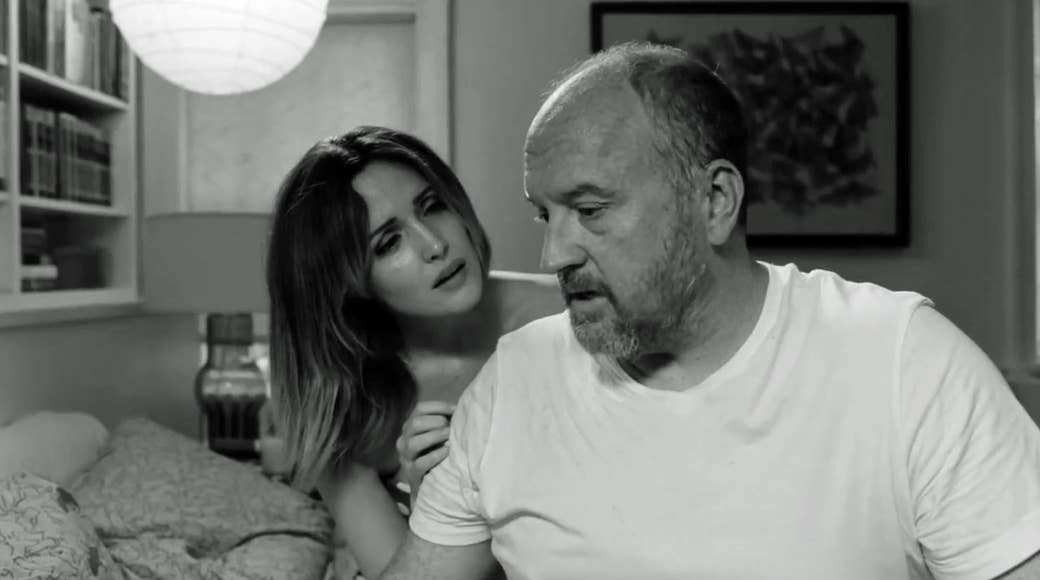
Louis C.K.'s I Love You, Daddy was already the world's most terribly timed movie. It's a would-be provocative comedy about how a man's Woody Allen–esque hero starts pursuing his 17-year-old daughter — and was, at the time of writing, still scheduled to open right in the middle of our current maelstrom of stories about decades of Hollywood predation. In the wake of Thursday's New York Times report on C.K.'s own long-rumored sexual misconduct, in which multiple women accuse the comedian of forcing them to watch or listen to him masturbate without their consent, The Orchard announced that it was canceling the release. It's a film, however, that should never have come out at all, unless it was going to be used as a primer for how conversations about power and consent get mishandled, muddied, and ultimately used to excuse or obscure abusive behavior.
In the movie, C.K. plays a successful but no-longer-on-his-game television producer named Glen Topher. John Malkovich is Leslie Goodwin, a revered 68-year-old director, unapologetic luster after teenage girls, and rumored child molester. If that doesn't make clear that he's intended to be a Woody Allen stand-in, then the reverence with which C.K.'s character treats him should. "He's a great artist! Probably the best writer-filmmaker of the last 30 years or more," he yelps when his daughter, China (Chloë Grace Moretz), brings up Goodwin's reputed pedophilia and known track record with much younger lovers.
Then he scolds her for judging someone on the basis of what she's heard rather than what she can know for sure. "His private life, that's not anybody's business," Glen says, in a variation on a familiar, nauseating rationale that people have used to defend their problematic (right up through potentially criminal) faves for time eternal. It's a rationale C.K. has employed on his own behalf, dismissing talk of his own then-only-rumored misconduct in the New York Times in September by saying, "If you actually participate in a rumor, you make it bigger and you make it real." He went on to say, "The uncomfortable truth is, you never really know. ... To me, if there was one thing this movie is about, it’s that you don’t know anybody."
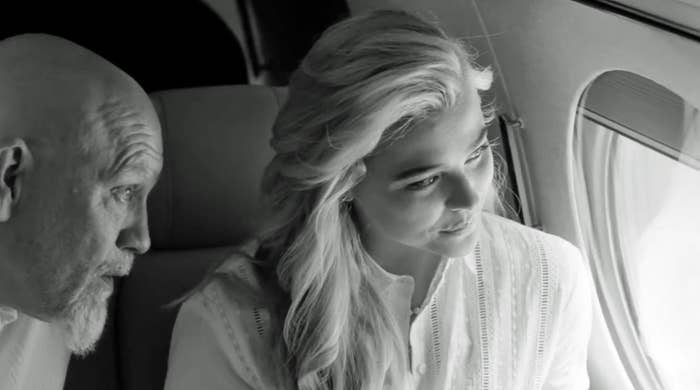
Given those "rumors" about C.K. — and the "rumors" that also swirled around Weinstein and Brett Ratner and Kevin Spacey and others before victims recently came forward to confirm allegations to the press — the astonishing convenience of this stance is galling. (As is the way the film coyly winks at the stories about C.K. by having a character mime jerking off in a room with his coworkers.) You "never really know" only if you're willing to consign accusations of sexual misconduct to the realm of gossip and hearsay, to pretend these stories get whispered about only because no one's sure if they're true, rather than because the consequences of speaking up can be so punitive.
As the post-Weinstein fallout consumes Hollywood, spreads through other industries, and provides hope that we may be headed toward actual (maybe) systemic (maybe) change, I Love You, Daddy isn't just tone-deaf. It's stunningly hubristic, pushing an argument that's been used to silence people for decades. And it unfolds entirely within what now feels like a very telling blind spot for its writer, director, and star, in which the answer to questions about consent is inevitably an alarming "it's complicated.”
I Love You, Daddy is the first movie C.K. has directed since Pootie Tang in 2001. In the years since, he's built up a career as one of the most respected stand-ups in the business; created Louie, an acclaimed, uneven FX show that helped spark a slew of other raw, form-pushing dramedies like Atlanta and Master of None; and self-funded Horace and Pete, an impossible to describe play-as-TV-drama-as-web-series that featured some genuinely great writing and acting. C.K. casts himself in the role of an industry hack in I Love You, Daddy, but as a real-life creator, he's been self-funding his projects in order to make them without outside interference. All of which makes the film more enraging and disappointing, coming after so much work that's grappled with other risky subject matter with empathy and humanity.
I Love You, Daddy is basically "As the Father of a Daughter": The Movie.
But he's been dicey on the topics of sexual violence and coercion before. In Season 4 of Louie, his character pushes himself on a resistant Pamela, played by longtime collaborator Pamela Adlon (who also appears in the new movie). During the ensuing struggle she snaps, "This would be rape if you weren’t so stupid!" And C.K. has talked about male violence against women in his stand-up, but when he's intentionally portrayed sexual coercion onscreen in the show, he's tended to role-reverse, allowing himself to get forced into oral sex by Melissa Leo or dressed in makeup and penetrated by Adlon. Given that he comes out of these encounters asking to see these women again, these scenes seem more intent on his character's humiliation than on showing any degree of understanding regarding consent.
I Love You, Daddy doesn't just continue to muddy the waters around those issues. It is in itself an example of a powerful comedian proving himself incapable of confronting the transgressions of another man in the industry he admires. Which isn't remotely surprising — in the Times article about C.K., estranged collaborator Tig Notaro goes on the record, but none of C.K.'s male colleagues do. Allen's a formative influence for many comedians, and he's clearly one for C.K., who's acted in one of Allen's movies and who includes multiple homages to Allen's Manhattan in I Love You, Daddy. But after raising the possibility of the sexual assault of a child, the film swerves to focus instead on the gray areas surrounding older men who try to sleep with teenage girls. It's a deflection that's crushing, not just because C.K. chooses not to confront the possible misdeeds of another powerful male comedian, but because he opts instead to pick and choose from the rumors, then argue that maybe some of these troubling choices aren't all that bad.
To describe this as an unasked-for argument would be putting it lightly. Yet the film makes it nonetheless, by sidelining the rumors of Goodwin’s pedophilia (something that even the noncommittal Glen can't rationalize away) as a “really personal story” Goodwin promises to explain over drinks. As Goodwin is shown grooming China, accompanying her as she tries on bikinis at a department store and taking her to Paris, Glen hovers indecisively, wanting to put a stop to what's happening but unwilling to put his foot down and confront either his doted-on child or the artist he so admires.
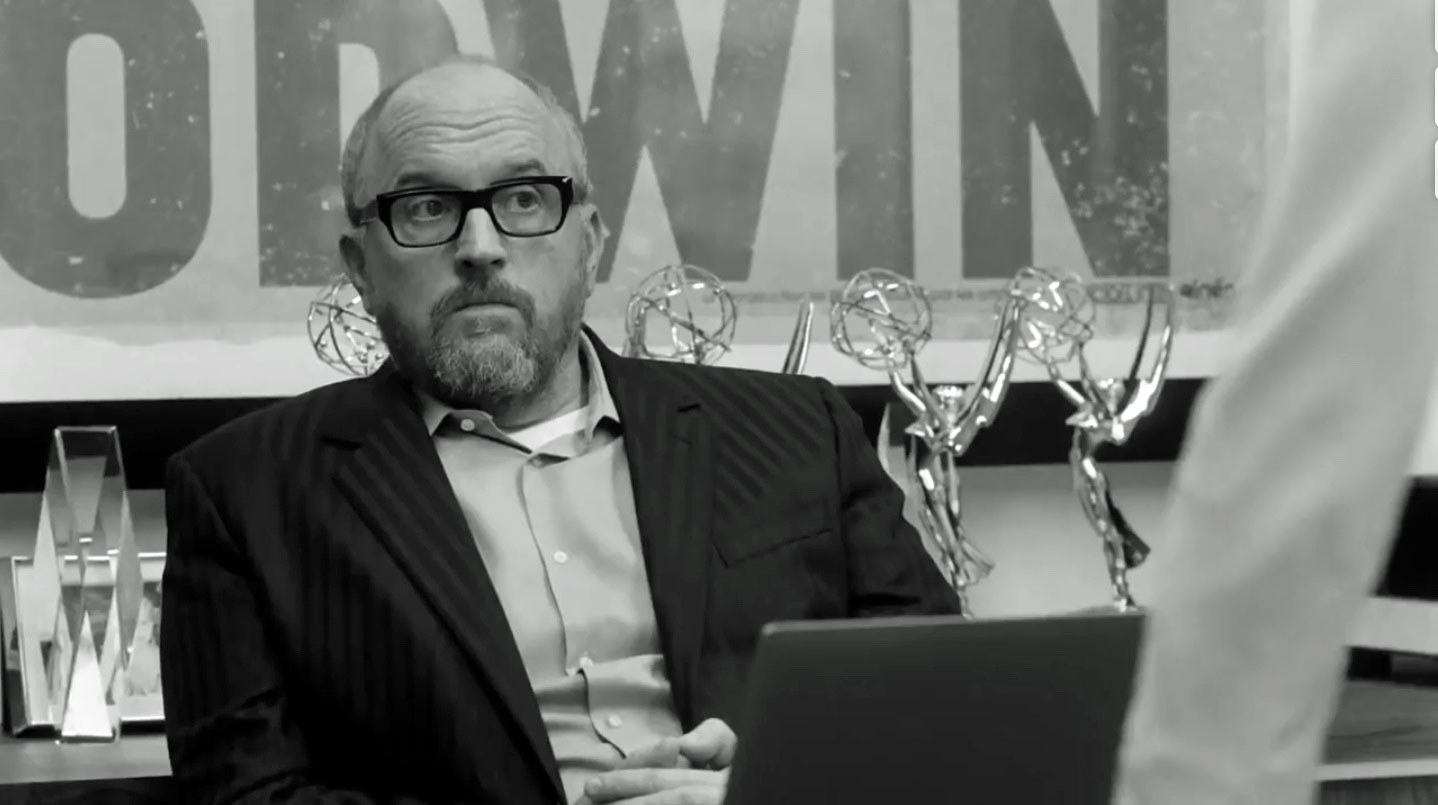
It's "As the Father of a Daughter": The Movie, but C.K. isn't interested in exploring and critiquing the mindset of men whose empathy for women seems entirely dependent on being a parent to one. In lieu of that, he makes a woman, his love interest Grace (Rose Byrne), present talking points about sexual maturity and why what he suspects is happening between Goodwin and his daughter might not be so bad. These are words C.K. clearly feels too uncomfortable having Glen speak; Grace shoulders the unmanageable burden of defending why teenagers should be able to have sex with adults while Glen halfheartedly recites reasons why it's wrong. She's positioned as the sophisticated third-wave feminist actor to his agency-denying rube, whom she scolds for describing the relationship she had as a teenager with a fiftysomething as rape. "So when a girl does feel lust and desire, then she's got to be with a fucking boy?" she snaps.
It's a conversation the movie presents as reasonable, when it's actually queasy and dangerous. C.K. wants to present sex and attraction as things that are too messy for broad rules or generalizations. But it's impossible to do that if you're also going to willfully ignore or remain oblivious to the central issue — how the massive power imbalance innate to this kind of relationship makes it ripe for abuse, the way power imbalances enabled and protected abuse in all of the stories currently spilling out of Hollywood at the moment. It's Adlon — tasked as she so often is in C.K’s work with being the voice of reason and sanity — who comes in as Glen's salty ex-girlfriend, socks him in the arm, and tells him he has to take action, even if it makes China hate him. In doing so, she provides C.K. with an escape hatch. He's able to turn the movie into one about his character's personal failings, rather than follow through on the incredibly troubling arguments he raises and then runs away from.
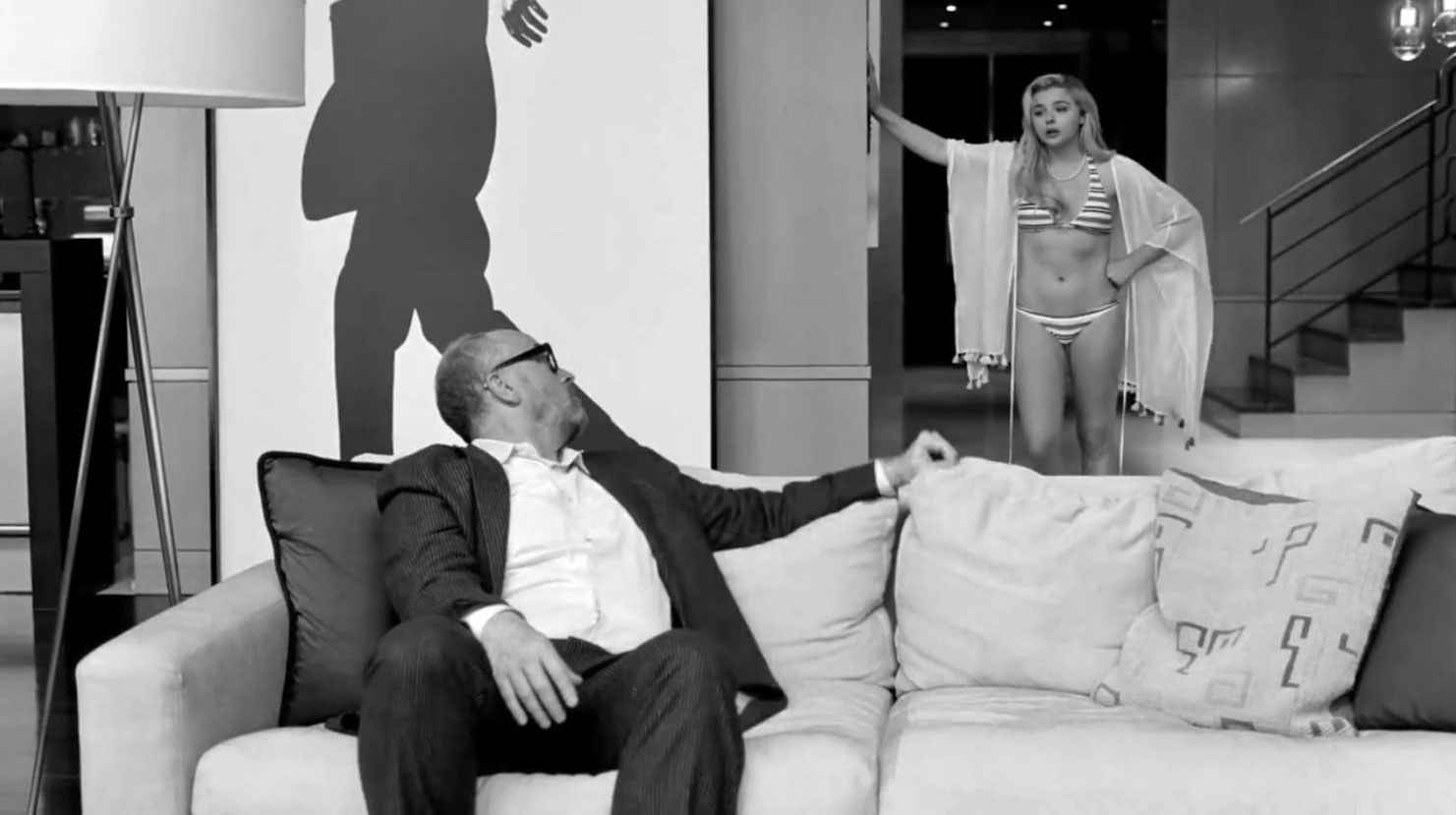
Woody Allen, like the character Leslie Goodwin, was accused but not charged of sexually abusing a child. His alleged victim was his then 7-year-old adopted daughter by then-partner Mia Farrow. Dylan Farrow reiterated the allegations in 2014, mincing no words in calling out those who continue to work with and support Allen, writing that "Woody Allen is a living testament to the way our society fails the survivors of sexual assault and abuse."
Allen has, of course, continued to work anyway, becoming an enduring symbol of Hollywood’s ability — up to this point — to treat sexual misconduct allegations as a mere inconvenience. He continued to work after marrying another of Mia Farrow's adopted children, a woman who is 35 years his junior, whom he met when he was dating Farrow (a relationship that caused a scandal, but wasn't illegal). The same can be said for the relationship between Allen’s 42-year-old character Isaac Davis and the 17-year-old Tracy (Mariel Hemingway) in Manhattan, traces of which — from the New York City setting to the black-and-white cinematography down to the fact that China is the same age as Tracy — are all over I Love You, Daddy. (Times have changed, but Allen's attempts to normalize these relationships continue with the film he just finished shooting, A Rainy Day in New York, which reportedly features a sexual relationship between characters played by Jude Law, 44, and 19-year-old Elle Fanning.)
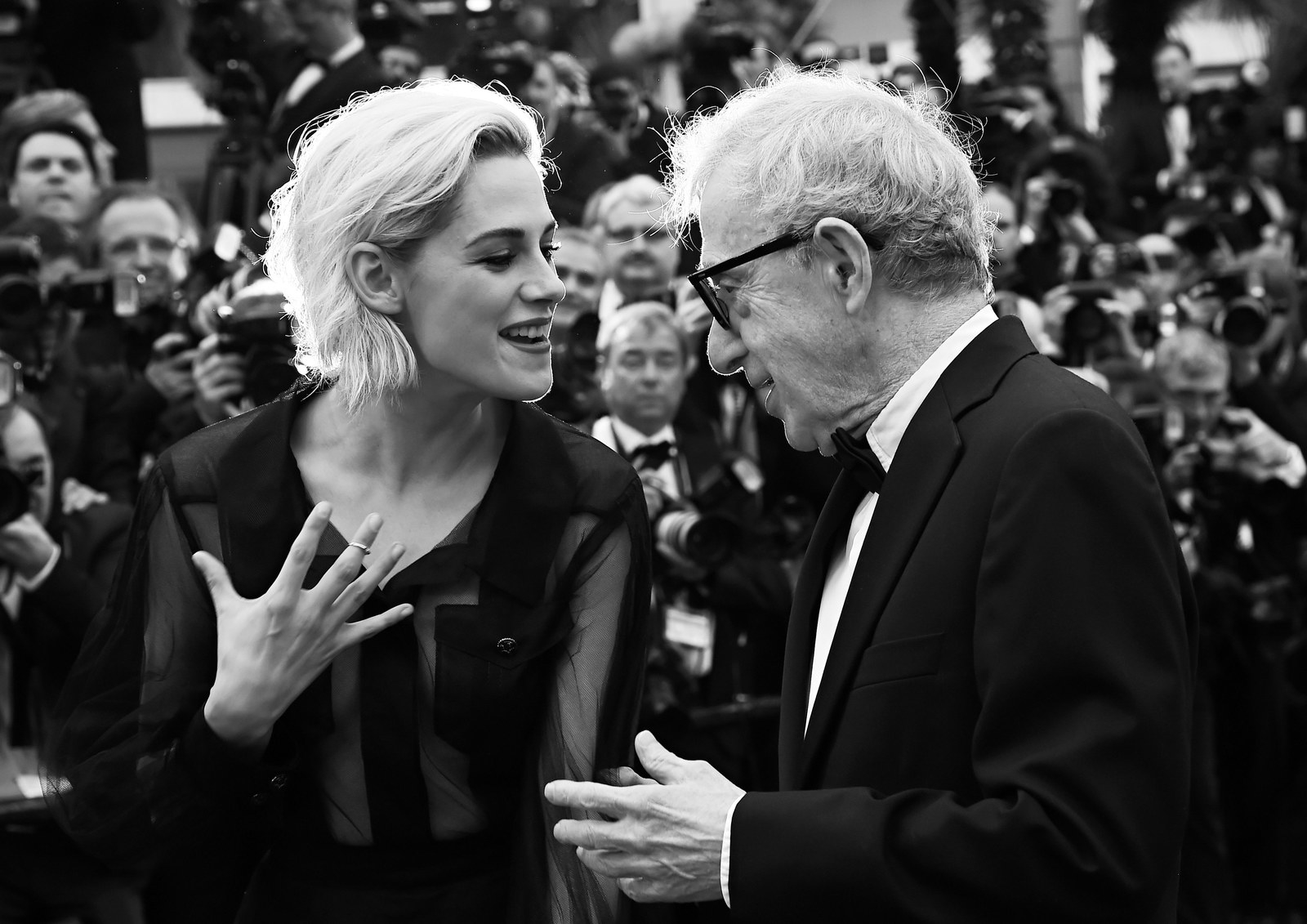
Hemingway herself was 18 when Allen tried to whisk her off to Paris the way Goodwin (Malkovich) does with China (Moretz) in I Love You, Daddy. Unlike China, Hemingway chose not to go — in her 2015 memoir, Hemingway described turning him down over uncertainty about the sleeping arrangement, saying, "I'm not going to get my own room, am I? I can’t go to Paris with you." Who knows if C.K. was aware of this anecdote when writing I Love You, Daddy (he declined to comment for this piece; C.K. responded to the allegations in the Times story with a written statement in which he says "These stories are true.") — but it feels like something that could have informed his film, especially in the way Hemingway describes her parents reacting to Allen's offer. "I wanted them to put their foot down. They didn’t. They kept lightly encouraging me," she wrote.
C.K.'s insistence, in his own movie, on keeping the focus on parental permissiveness rather than the predatory nature of a decades-older celebrity trying to erode a teenager's boundaries enough to fuck her, serves as its own kind of normalization. And so I Love You, Daddy ends up being a tribute to Allen in ways C.K. probably never intended. "We’re at the bleeding edge of 'That’s not OK to do now,' but those people are still around," he told the Hollywood Reporter. "That’s a very interesting line to be on." He doesn't just let Allen off the hook — he lets himself off as well.
C.K. has described I Love You, Daddy, which he shot on the sly this summer, as a film he expected would piss some people off. But in light of C.K.'s alleged past behavior, and the fumbled apologies he reportedly made to some of his victims in the years since, the movie plays more like a stroke of self-immolation. It’s the work of a man who's been expecting consequences to come calling, and who decided to lean into the coming anger with a have-to-hear-all-sides affront that inadvertently echoes so many of the excuses and denials that men adjacent to or accused of misconduct have offered up in the past few weeks.
I Love You, Daddy is the work of a man who's been expecting consequences to come calling.
When Glen claims Goodwin's sex life is "not anybody's business," it mirrors what Matt Damon recently said about the allegations surrounding Harvey Weinstein to ABC News, painting him as a “womanizer” rather than an abuser. "I wouldn’t want to be married to the guy," Damon said. "But that’s none of my business, really." And when the movie skirts over the possible assault of a child in favor of steering the conversation toward the morality of May-December relationships, it brings to mind Kevin Spacey's attempt to pivot away from Anthony Rapp's allegations of being assaulted while underage by coming out.
And when Glen, at a dark moment, offers a broad repentance to all the ladies in his life, it lines up eerily with the way the tech industry's Robert Scoble denied sexual misconduct allegations made against him in October while writing, "I apologize to women in general that I could have been a better man and husband." C.K’s Glen blurts out a more impulsive "I'm sorry! I'm sorry, women. Please, on behalf of all women, please let you all know that I am very fucking sorry." It's meant to be a joke, the low point for a man who feels like he's been unable to live up to anyone's personal or professional expectations. But it ends up turning an unwillingness to take a stand on sexual misconduct as just another one of Glen's foibles.
You know, no big deal, just another flaw on par with how he's no longer a good writer, or how he dumps all his work onto his long-suffering producing partner. It's narcissism in the guise of self-criticism, his character talking around these huge issues of consent and maturity and in the end only delivering a song of himself. C.K., for all his other insight, proves himself incapable of wrapping his head around the sexual and professional power dynamics that he thinks he's exploring, but that doesn't stop him from feeling comfortable commenting on them. Or from suggesting that the what-the-hell moral of the film, delivered (of course) by another teenage girl, is that "Everybody's a pervert. I'm a pervert, we're all perverts, who cares." Turns out, people are starting to care a lot. ●
UPDATE
This article has been updated to reflect The Orchard's decision not to distribute I Love You, Daddy and Louis C.K.'s November 10 statement.
